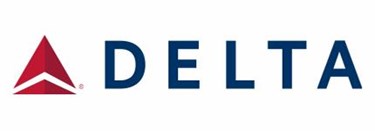Restaurant And Hospitality News – December 5, 2016

By Christine Kern, contributing writer

In news this week, Delta Airlines has unveiled a new RFID luggage tracking app that lets fliers see in real-time where their bags are; and the injunction of the implementation of the new overtime rules has been appealed by the Department of Labor.
Delta Airlines Unveils Luggage Tracking App
Delta Airlines is now using Radio Frequency Identification (RFID) technology to provide customers with improved real-time tracking of their luggage throughout the travel experience. The RFID replaced barcode hand scanning, which has been the industry standard since the early 1990s. The app allows customers to see push notifications from the Fly Delta mobile app alerting them that their bags are either on or off an aircraft.
“With a $50 million investment in RFID at 344 stations around the globe, we aim to reliably deliver every bag on every flight,” explained Bill Lentsch, Delta’s Senior Vice President – Airport Customer Service and Cargo Operations. “This innovative application of technology gives us greater data and more precise information throughout the bag’s journey.”
Wherever the airline scans the bag into the system, customers will be able to track it on their app. This is the first baggage-tracking app that has been introduced by a major carrier. According to the Washington Post, Delta added a map feature to its mobile app that provides real-time updates and even geographic coordinates as their bag makes its way through the baggage system.
“In the same way that customers want information at their fingertips about flight changes, we know our customers want clear visibility to their checked bags,” said Tim Mapes, Delta’s Chief Marketing Officer. “Delta’s industry-first baggage tracking app was a good first step. RFID will allow us to set a new standard for more transparent, interactive tracking on the Fly Delta mobile app.”
Delta has implemented the RFID scanning technology at 25 of the 84 largest airports in the United States where it operates, with plans to expand to the remaining locations in the coming months. A spokeswoman said the company anticipates a 10 percent improvement in its “mishandled baggage” rate as a result of the technology. In an earlier report from The International Air Transport Association, research found that the global airline industry could reduce mishandled baggage 25 percent by 2022 and save $3 billion if RFID technology was universal.
“From the moment our customers drop off their bag, we want them to know we’re looking out for it every step of the way and working to take the stress out of flying one innovation at a time,” Bill Lentsch, Delta’s senior vice president of airline operations and airport customer service, said in the news release.
Department of Labor To Challenges Overtime Rule Injunction
After Federal District Judge Amos L. Mazzant III of the Eastern District of Texas issued a nationwide injunction against the expansion of the new overtime regulations created by the Obama administration, the Department of Labor has announced its intention to challenge the ruling. According to the Wall Street Journal, Labor Secretary Thomas Perez and other department officials have filed a notice of appeal with the Fifth U.S. Circuit Court of Appeals in New Orleans. The overtime regulations were scheduled to go into effect on December 1, and raise the overtime threshold to $47,476 annually. The appeal does not lift the injunction automatically, however, and employers are not required to comply with the new overtime rules until the court takes action, as The Nation’s Restaurant News reported.
While the judge still needs to hear the case and issue a final ruling on the overtime legislation, the regulation could still face a challenge from President-Elect Donald Trump, who has indicated that he is supportive of rolling back business regulations he views as economically harmful to businesses.
While many in the restaurant and hospitality industries lauded the injunction, for many it came too late. A number of employers had already put into motion changes to employee exemption status or salary levels in anticipated compliance with the new rules, and now cannot roll them back.
